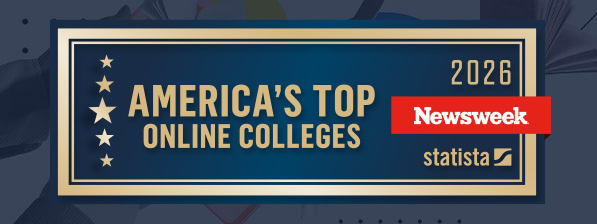Emotional intelligence sometimes gets dismissed as an oxymoron or something less-than-scientific. After all, intelligence is about being rational and emotions are not exactly rational, right?
Not so much.
This line of thinking is now considered outdated and ineffective, both in the personal life and in the professional realm. Effective leaders must have high emotional intelligence to effectively motivate, inspire and earn the trust of their teams and to perceive any potential friction or issues before they become problematic.
Emotional intelligence in the workplace is almost as important as “traditional” intelligence—and in many cases, it is more important for solving complex problems that require teamwork and the human element.
Here’s what you need to know about emotional intelligence and how you can grow in it.
WHAT IS EMOTIONAL INTELLIGENCE?
Emotional intelligence is quantified as the Emotional Quotient (EQ), which is scored by measurable test results agreed upon by leading psychologists. Much like the more familiar Intelligence Quotient (IQ), emotional intelligence and EQ are key predictors of a person’s success in a given range of situations.
These forms of intelligence require subtlety and involve the so-called “soft skills.” Unlike raw computational power or reading comprehension, emotional intelligence relies on interactions between people.
In this context, it is not hard to understand why emotional intelligence matters in the workplace. Unless you work alone, you interact with your co-workers on a daily basis.
The good news? Unlike IQ, which most experts agree cannot be meaningfully altered, EQ has a large learned component which you can improve with concerted effort. It is possible to improve emotional intelligence to be a more effective leader, co-worker and person.
John D. Mayer, the UNH research professor who coined the term in 1990, later clarified it this way:
From a scientific (rather than a popular) standpoint, emotional intelligence is the ability to accurately perceive your own and others’ emotions; to understand the signals that emotions send about relationships; and to manage your own and others’ emotions. It doesn’t necessarily include the qualities (like optimism, initiative and self-confidence) that some popular definitions ascribe to it.
This definition underscores the role of emotional intelligence in a professional setting. Whether you work on the front lines of a sales team, manage a large team of co-workers or keep to yourself while designing user-facing software, understanding emotions is a critical part of success in the workplace.
WHY EMOTIONAL INTELLIGENCE MATTERS IN YOUR JOB
As a member of the workforce, you are rarely graded on standardized test formats like you were in high school or college. Instead, managers and bosses monitor a seemingly intangible set of factors like work ethic, compatibility with your team and the ability to steer people towards a common goal.
Here are a few of the key measures of emotional intelligence that explain why having a high EQ matters so much.
EMPATHY
Often regarded as the human ability to put yourself in someone else’s shoes, empathy is a key trait of emotionally intelligent people because it demonstrates the ability to grasp how your actions affect others and how others are feeling when you approach a task or situation.
Reading the mood of a potential client or a team facing a tight deadline is a crucial first step in leading the situation successfully. Embracing someone’s energy, addressing unspoken concerns or fear and identifying passions are all ways that empathy can help a great leader be emotionally intelligent.
SELF-ASSESSMENT
The ability to self-assess goes well beyond those dreaded “self-assessment” evaluations some companies ask their employees to take. Instead, it entails a broad set of measurements a person should master to recognize how their mood, actions and tone affect others and how their personal preferences or beliefs alter how they think or act.
This is especially important as it pertains to emotional intelligence in business. Oftentimes, a person’s opinion might differ from the role they play in a team or workplace setting.
Self-awareness and self-assessment enable us to recognize our emotions, biases and strengths to set ourselves up for success before letting quick reactions get the better of us.
DISCIPLINE
This is essentially the “action” component of self-assessment. Recognizing your potential to react and using discipline to temper, alter or suppress your blink reaction is a key trait of great leaders and team players alike. While many people are quick to dismiss the term “emotional intelligence” as a soft alternative to grit and ambition, all of the greatest and grittiest leaders throughout history have exercised extreme discipline.
From keeping calm in stressful situations to changing your first reaction in a situation to better suit the end goal, discipline puts you in a position to work well and work hard without letting emotions get the best of you.
Part of being emotionally intelligent means using your emotions well, and being calm, cool and collected counts as emotional intelligence.
RELATIONSHIP MANAGEMENT
The culmination of all of these skills is relationship management. That is, using your read of situations and intuition about human interaction to create successful teams, provide successful encouragement and continuously cultivate healthy relationships with consistency and intentionality. Relationship management may have a rigid-sounding name, but it really means a casual mastery of maintaining friendships, business relationships and family dynamics through experience.
HOW TO GROW IN EMOTIONAL INTELLIGENCE
The good news is that it’s always possible to grow in EQ, Whether you feel emotionally intelligent or aren’t sure where you fit on the EQ spectrum, these tips can help you become more emotionally intelligent.
BE MINDFUL
Whether you practice yoga or prayer, enjoy running, knitting, reading or fishing, setting some quiet time aside to “look inward” can make a big difference in your understanding of self.
Self-assessment and discipline are some of the building blocks of emotional intelligence. Setting time aside to examine your reactions to situations in daily life or reading up on great leadership or interpersonal skills is time well spent.
BITE YOUR TONGUE
Whether it’s listening more and talking less, delaying your responses to let the initial emotional impulse subside or saying fewer strong-minded things, slowing down and thinking before you speak is a great way to increase your applied EQ.
And by slowing down and gathering your emotions, you can holistically communicate more effectively. After all, studies show that effective communication is just as much about body language as the words themselves.
SELF-ASSESS
Start simple. Before walking into work, think about how you’re feeling that day. Rate it 1-10, contemplate what’s contributing to that number and be aware of it as you go through the day.
A poor night’s sleep is a reasonable explanation for being snappy or inattentive, but people on the other end of the conversation don’t know that and will only pick up on what they’re experiencing in the moment. A great weekend can leave you feeling energized, so why not take on some tasks or plan to get lunch with people to foster relationships while you’re really up for it?
EQ MATTERS AND YOU CAN DEVELOP IT
Emotional intelligence matters in every facet of life, and simply understanding what it is can go a long way in helping you improve your own EQ. Now that you know the four main pillars of emotional intelligence, you can identify how those things factored into recent experiences you’ve had at work or at home.
Once you start identifying the effects of emotional intelligence and planning out a few routines to consistently improve your “score” in daily situations, you’ll be amazed how much more successful you are in daily interactions and large, high-stakes professional situations alike. You might even wind up a happier person, too.
RELEVANT FOR ALL FIELDS
Emotional Intelligence is relevant in many areas of life. Whether in business, ministry, human services, education or any other field, being exposed to a range of experiences and skills can help you greatly in your career. With our degree programs, you can grow in your specialized field while also hearing from the diverse experiences of others.










